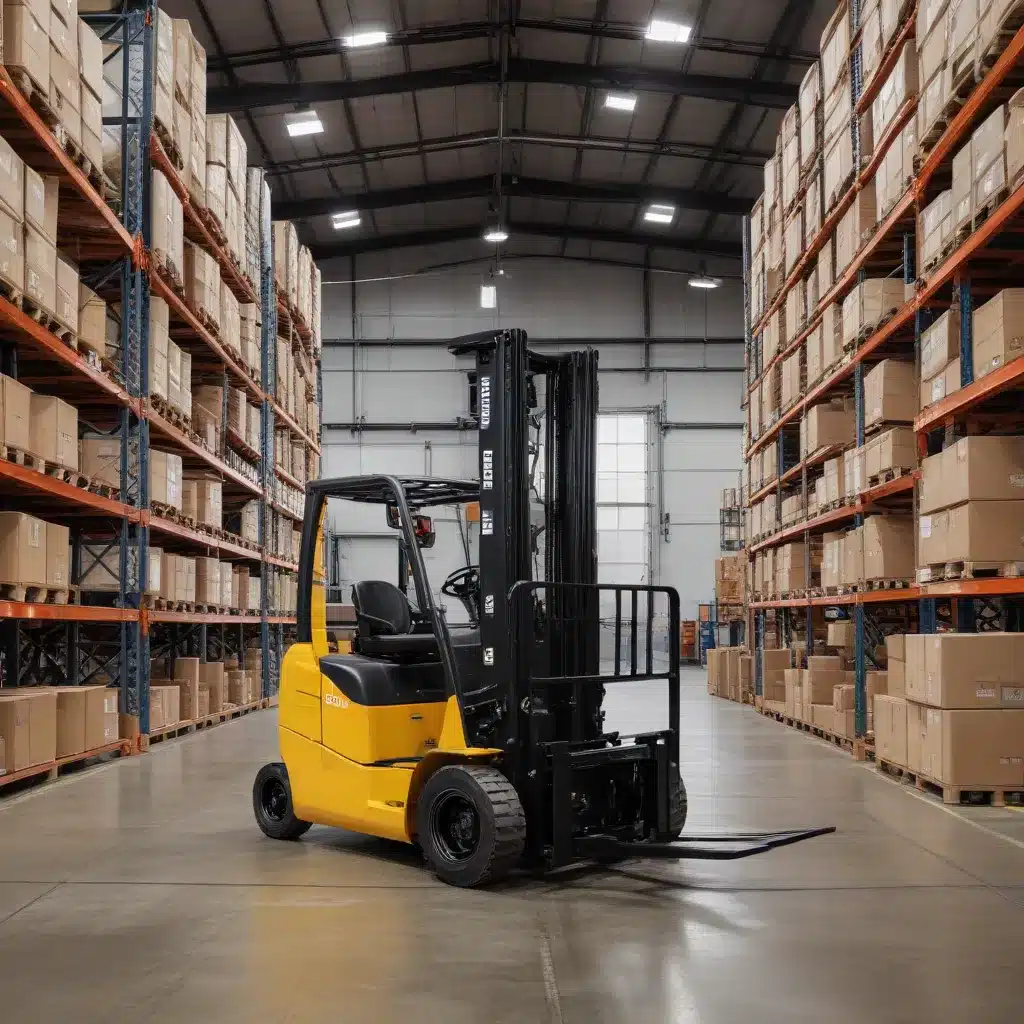
The Electrification Transformation in Warehousing
The transportation industry is undergoing a significant shift towards electrification, and this transformation is having a profound impact on the world of warehousing as well. As the push for sustainability and efficiency gains momentum, the warehousing sector is embracing innovative electrification technologies that are redefining how goods are stored, moved, and managed.
The advent of electric vehicles (EVs), including compressed natural gas (CNG) trucks, has revolutionized the transportation landscape. However, the journey towards a greener future must also address the environmental impact of warehousing operations. In this article, we will explore the various ways in which electrification is reshaping the warehousing industry, offering tangible benefits to both the environment and the bottom line.
The Rise of Electric Forklifts
At the forefront of the electrification revolution in warehousing are the electric forklifts. These innovative vehicles have emerged as game-changers, offering a host of advantages over their conventional counterparts.
Improved Performance and Precision: Electric forklifts boast enhanced performance, enabling smoother and more precise movements. This translates to improved efficiency and productivity in warehouse operations.
Reduced Noise Levels: One of the most notable benefits of electric forklifts is their significantly lower noise levels. This creates a quieter and more comfortable work environment for warehouse employees, enhancing their well-being and job satisfaction.
Lower Operating Costs: As electric forklifts do not require fossil fuels, they have substantially lower operating costs compared to traditional forklifts. Additionally, they require fewer maintenance requirements, further reducing the overall cost of ownership.
Environmental Sustainability: By eliminating the use of fossil fuels, electric forklifts contribute to a more sustainable warehousing ecosystem. They significantly reduce greenhouse gas emissions and help warehouses achieve their environmental sustainability goals.
Electric Pallet Jacks: Enhancing Maneuverability
Another electrification technology transforming warehousing operations is the electric pallet jack. These compact and maneuverable vehicles efficiently transport pallets within a warehouse, offering distinct advantages over their manual counterparts.
Improved Maneuverability: Electric pallet jacks enable enhanced maneuverability, allowing operators to navigate narrow aisles and tight spaces effortlessly. This increased agility streamlines operations, reduces labor costs, and improves overall productivity.
Ergonomic Benefits: The reduced physical effort required to operate electric pallet jacks can help alleviate strain on warehouse workers, creating a more comfortable and safer work environment.
Increased Efficiency: By optimizing the movement of pallets within the warehouse, electric pallet jacks contribute to a more efficient and streamlined material handling process.
Tracking Energy Consumption: Towards a Sustainable Future
While the electrification of transportation is a well-known aspect of the sustainability movement, the impact of non-transport functions within warehousing operations should not be overlooked. More companies are now actively exploring solutions to track and manage the total energy consumption and emissions throughout the entire warehousing and distribution ecosystem.
Comprehensive Sustainability Tracking: Innovative technologies are enabling warehouses to monitor and analyze their energy usage, carbon footprint, and overall environmental impact. This data-driven approach empowers decision-makers to implement targeted strategies for further improving sustainability.
Alignment with Industry Regulations: Proactive measures, such as integrating cleaner vehicles and renewable energy infrastructure, can help warehouses align with evolving industry regulations and standards, such as the Warehouse Indirect Source Rule. This demonstrates a commitment to environmental stewardship and responsible operations.
Healthier Communities: By prioritizing sustainability and reducing emissions, warehouses can contribute to the overall well-being of the communities in which they operate. This aligns with the growing societal demand for businesses to be more socially and environmentally responsible.
Embracing Electrification: The Path to a Sustainable Future
The transportation industry’s shift towards electrification has had a profound impact on the warehousing sector. As businesses navigate this transformation, they can leverage the expertise and sustainable solutions offered by industry leaders to confidently embrace the power of electrification in their warehousing operations.
By adopting electric forklifts, electric pallet jacks, and comprehensive energy tracking systems, warehouses can unlock a host of benefits, including:
- Improved efficiency and productivity
- Reduced operating costs and maintenance requirements
- Enhanced employee well-being and job satisfaction
- Significant reductions in greenhouse gas emissions and a smaller carbon footprint
- Alignment with industry regulations and sustainability initiatives
As the warehousing industry continues to evolve, the integration of electrification technologies will be pivotal in shaping a more sustainable and environmentally-conscious future. By embracing this transformation, businesses can not only enhance their operational excellence but also contribute to the larger goal of creating a greener, more sustainable logistics ecosystem.
To learn more about the benefits of electric forklifts and how you can integrate them into your warehousing operations, visit Forklift Reviews today.
Navigating the Electrification Landscape
The transition to electric-powered equipment and systems in warehousing is a strategic move that promises numerous advantages. As businesses navigate this transformative landscape, they can partner with industry experts to ensure a seamless and successful integration of electrification technologies.
Comprehensive Assessments: Conducting thorough assessments of the existing infrastructure, operational requirements, and sustainability goals can help businesses identify the optimal electrification solutions for their warehousing needs.
Tailored Implementation Strategies: Experienced industry partners can provide guidance on the selection, implementation, and maintenance of electric forklifts, pallet jacks, and energy tracking systems, ensuring a smooth and efficient transition.
Maximizing Operational Efficiency: By leveraging the expertise of industry professionals, warehouses can unlock the full potential of electrification, optimizing productivity, reducing costs, and enhancing sustainability.
Compliance and Regulatory Support: Navigating the evolving industry regulations and standards related to emissions, energy usage, and environmental impact can be complex. Industry experts can help warehouses stay ahead of the curve and maintain compliance.
Ongoing Monitoring and Optimization: Continuous monitoring and optimization of electrified systems and processes can help warehouses continuously improve their sustainability performance and identify new opportunities for optimization.
As the warehousing industry embraces the sustainable future, the integration of electrification technologies will be a defining aspect of this transformation. By partnering with knowledgeable industry professionals, businesses can confidently navigate this evolving landscape and reap the rewards of a more efficient, eco-friendly, and future-ready warehousing operation.

